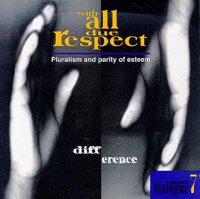this theory assumes an active audience, which chooses the texts it consumes and where individuals have differing reasons for consuming these texts...
Blumer & Katz expanded this theory in 1974, suggesting a series of possible reasons why audience members might consume a media text:
Diversion...
(escape from everyday problems and routine)
I guess sometimes watching a good tv programme or an interesting movie can help to detach you from problems and daily routine as you may be engrossed with what you're watching causing you to switch off from daily events - this is referred to as 'escapism'. I don't always tend to do this however there are times when I may feel to get away from everything and nothings better for that than a good film.
Personal Relationships...
(using the media for emotional and other interaction)
To be honest I don't feel that this applies to me. I don't actually watch any soaps now - they just all seem like abit of a bore and I don't feel as if though I am able to relate to the situations, characters and relationships portrayed in them . The only soap I have formally watched is 'Eastenders' but that was time ago then and for some reason it was entertaining then but just not anymore.
Personal Identity...
(constructing their own identity from characters in media texts)
I don't think that I construct my own identity from characters in media texts that I come across. I do relate to certain characters in certain ways at times dependant upon the situation however, this doesn't help me to form my own identity via them. There are times that I also feel a part of a situation as it may be a reflection of my own life but generally media texts do not form my own identity.
Surveillance...
(information gathering)
This aspect of the theory probably relates to me the most as I do watch the news with my mum at times in the week and read the paper she brings home most days oOo and I do quite frequently check the weather :)
Additional audience motivations include the following suggestions by Denis McQuail:
Information...
In terms of finding out about relevent events and conditions or seeking advice I don't usually rely on the television - I use the internet as the main source of my informational needs as it is a quicker alternative to the tv. Such as for example to find out certain information - perhaps flight details or checking the weather etc.
For general interest, there are times when I may watch particular documentaries that may appeal to me.
Learning...
Generally, you are able to learn from any media text that you may consume - you are bound to come across things you didn't previously know. Although, I don;t specifically watch things that I intend to learn from unless it's the news or a documentary.
Integration & Social Interaction...
Finding a basis for conversation and social interaction is porbably something that would occur in my life as there are times when you watch something you really anjoyed or found interesting that you would want to discuss with everyone the next day.
I don't think you can use tv as a substitute for real life companionship that's just silly - tv doesn't compare to real relationships.
Entertainment...
This is probably the main reason I watch tv - for entertainment. I tend to turn to tv when I am bored or feel as if though I have nothing better to do when I probably do. And when I'm just chilling. The stuff I generally tend to watch in such a situation is tv sitcoms, perhaps dramas, music videos or a film. Also - this can be a form of escapism when I'm trying to get away from something like work lol.






